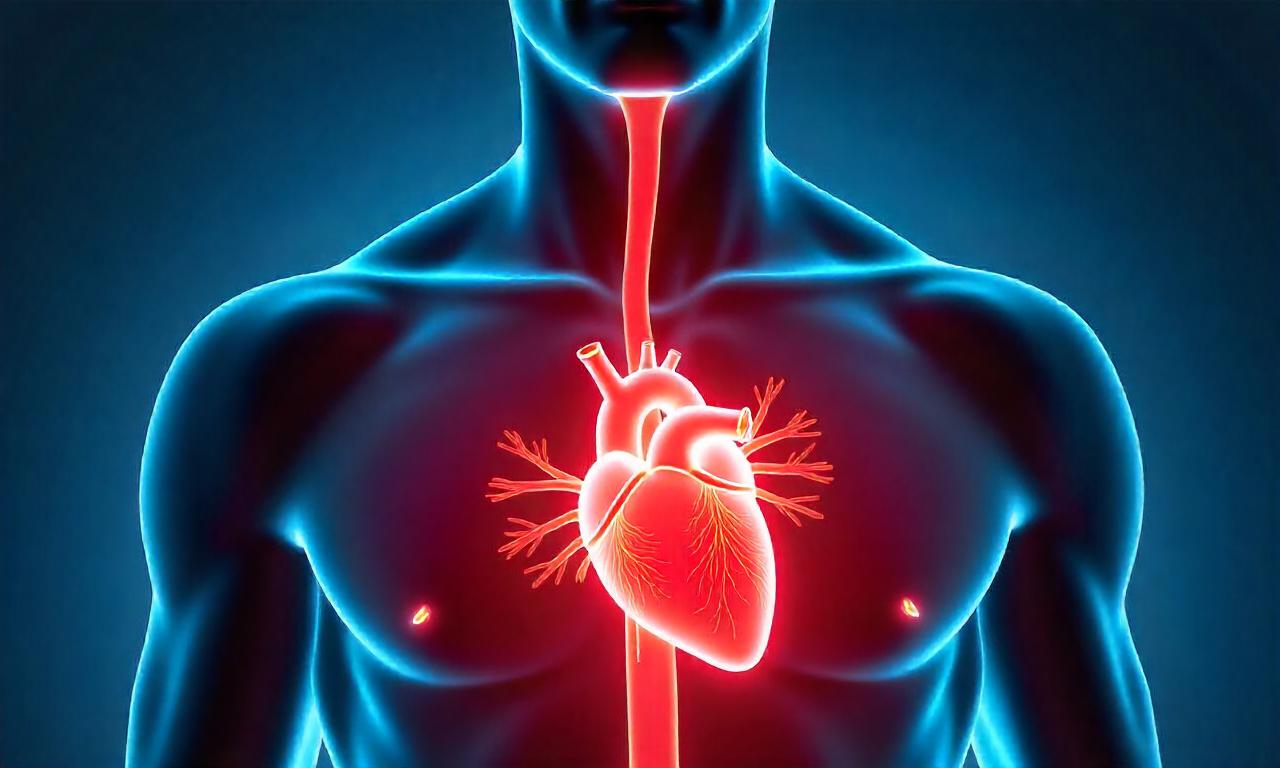# Early Symptoms of Heart Problems in Men: Recognize and Act Heart disease remains one of the leading causes of death worldwide, and early symptoms of heart problems in men often go unnoticed until a critical event occurs. Recognizing these subtle warning signs can be the key to early intervention, which significantly improves survival rates and reduces the risk of severe complications. This article aims to guide men in identifying early symptoms of heart problems in men, understanding their causes, and taking timely action to protect their cardiovascular health. From common indicators like chest discomfort to less obvious symptoms such as fatigue or dizziness, we’ll explore everything you need to know to stay proactive. Whether you're a man experiencing unexplained physical changes or simply seeking to educate yourself, this guide is designed to empower you with knowledge and actionable steps. — ## Common Early Symptoms of Heart Problems in Men Heart disease often starts with subtle signals that can easily be dismissed as stress, fatigue, or aging. These early symptoms of heart problems in men may appear gradually, making it challenging to recognize them without awareness. One of the most frequently reported symptoms is chest discomfort, which can range from a dull ache to sharp pain. This discomfort may radiate to the arms, neck, jaw, or back, and it’s often mistaken for indigestion or muscle strain. Men should pay close attention to these sensations, especially if they persist or worsen over time. Another common sign is shortness of breath, which may occur even during light physical activity. This symptom is often linked to reduced blood flow to the heart, causing the body to work harder to meet oxygen demands. Some men may experience this alongside chest pain, while others may notice it independently. It’s crucial to differentiate between shortness of breath caused by heart issues and that from other conditions like asthma or allergies. For instance, heart-related shortness of breath is usually accompanied by fatigue, dizziness, or nausea. Fatigue is also a critical early symptom of heart problems in men, particularly in cases of silent heart attacks or cardiomyopathy. Unlike the typical "angina" associated with chest pain, fatigue may be the only noticeable symptom, especially in older men. This is because the heart’s reduced efficiency can lead to inadequate blood flow to vital organs, including the brain and muscles. Fatigue can also be mistaken for a lack of sleep or overwork, but when it occurs without an obvious cause, it may signal an underlying issue. — ### 1.1.1. Chest Discomfort Chest discomfort is often the first sign of heart problems in men, but its presentation can vary. Chest pain typically feels like pressure, tightness, or a burning sensation, and it may last for several minutes or come and go. This symptom is most commonly associated with coronary artery disease (CAD), where plaque buildup narrows the arteries, reducing blood flow to the heart. However, not all men experience chest pain in the same way—some may feel a sharp or stabbing pain, while others might have a subtle, persistent ache. The location and radiation of chest discomfort are also important indicators. Pain in the center of the chest, especially if it spreads to the left arm, neck, or jaw, is often a red flag. Additionally, men may experience upper back or stomach pain, which can be mistaken for gastrointestinal issues. A study published in the *Journal of the American College of Cardiology* highlights that men with heart problems are more likely to report chest pain compared to women, who often describe it as pressure or tightness rather than sharp pain. This difference underscores the need for men to be vigilant about their chest sensations. — ### 1.1.2. Shortness of Breath Shortness of breath, or dyspnea, is another early symptom of heart problems in men that shouldn’t be ignored. This symptom may manifest during physical exertion, but it can also occur at rest, especially in advanced stages of heart disease. Men with heart failure or cardiomyopathy often experience unexplained breathlessness, even after minimal activity. The body’s inability to pump blood efficiently leads to fluid buildup in the lungs, making it harder to breathe. In some cases, shortness of breath may be accompanied by fatigue or dizziness, which can be early signs of reduced cardiac output. For example, myocardial infarction (heart attack) can cause sudden breathlessness due to the heart’s impaired ability to supply oxygen to the body. Men should also note if their breathing becomes labored at night, as this could indicate left-sided heart failure. A *Mayo Clinic* report emphasizes that shortness of breath is a common symptom in men with atherosclerosis, a condition where arteries harden due to plaque accumulation. — ## Gender-Specific Differences in Heart Symptoms While early symptoms of heart problems in men are similar to those in women, there are notable differences in how they present. Men are more likely to experience classic heart attack symptoms, such as chest pain and shortness of breath, whereas women may report more varied or subtle signs. This distinction is critical for timely diagnosis and treatment. One significant difference lies in the symptom onset. Men often notice sudden and severe symptoms, which can lead to quicker medical attention. In contrast, women may experience gradual or mild symptoms that are easy to overlook. For example, women are more prone to silent heart attacks, where symptoms are minimal or absent. This is often attributed to hormonal differences, particularly the protective effects of estrogen before menopause. However, post-menopausal women may exhibit symptoms more similar to men, making early detection more challenging for both genders. — ### 2.1.1. Atypical Symptoms in Men Despite the common belief that men experience classic heart attack symptoms, some men may present with atypical signs. These can include upper back pain, epigastric discomfort, or pain radiating to the jaw. Unlike the typical chest pain, these symptoms may not be immediately recognized as heart-related. A *British Heart Foundation* study found that 30% of men experience non-chest pain symptoms during a heart attack,





